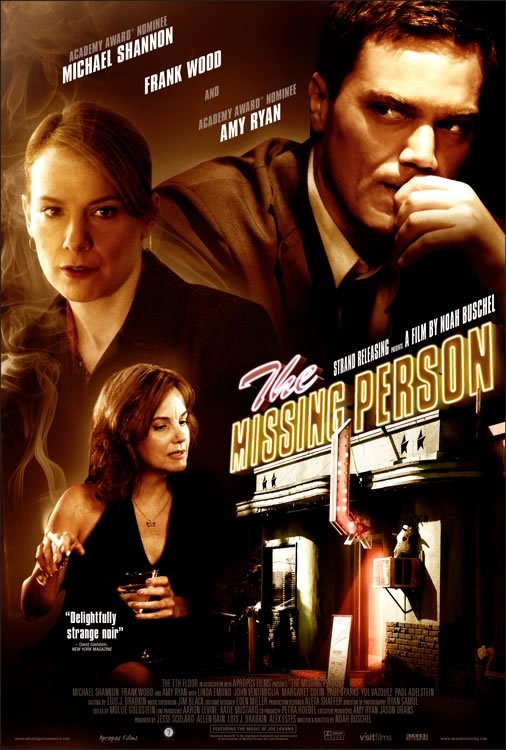“Moody Revelations”

| None | Light | Moderate | Heavy | |
|---|---|---|---|---|
| Language | ||||
| Violence | ||||
| Sex | ||||
| Nudity |
What You Need To Know:
Though it has some mystery and builds some tension, THE MISSING PERSON is more of a moody character piece. It has cryptic, ambiguous moments, but there is also some positive Christian and moral content. In fact, a brief epilogue reveals that the protagonist’s experience leads him to let go of his personal demons and become sober. These positive redemptive elements are spoiled by some strong foul language, a bedroom scene, and heavy alcohol use.
Content:
(C, B, LL, V, S, AA, DD, MM) Light, somewhat ambiguous Christian, moral worldview in a moody mystery drama about an alcoholic private detective who encounters a case with some moral dilemmas that force him to confront his own personal demons, with some positive references to Christianity and Catholic saints; about 16 obscenities (including a mix of “f” words, “s” words, and “h” words) and two strong profanities using Jesus; light violence includes man knocked unconscious twice and frantic sounds heard in recordings from World Trade Center terrorist attacks in 2001; man picks up woman in bar and brings her to his hotel room, kissing on bed between unmarried couple, brief passionate kissing standing up as people take off shirt and blouse, and woman asks her to come back into bed but he only wants to dance, flashback shots of man lying in bed with his apparently beloved wife, and light verbal reference to boy involved in street prostitution in the past before being rescued, but nothing explicit; brief upper male nudity, some female cleavage, woman in black slip and bra, and woman in unrevealing bedclothes; alcohol use and scenes of drunkenness; smoking and man offers another man some marijuana but man keeps refusing, plus a reference to the FBI investigating a possible drug dealer; and, lying, man forced to go somewhere against his will, greed, and corruption.
More Detail:
John follows the man and boy to a small village in Mexico. He watches them talk to a Mexican guy, but is suddenly knocked unconscious. When he wakes up, the Mexican guy tells John that the mystery man’s name is Harold Fullmer. He tells John that Harold has been saving lost boys on the streets and bringing them into the refuge of his orphanage.
John tracks Harold back to Los Angeles. The lawyer who hired John calls him and offers John $500,000 to bring Harold back to his wife in New York. The lawyer is very secretive about the story behind this offer, however, so John confronts Harold in the train depot.
Harold reveals to John that he is a missing person, one of the people presumed dead after the 9/11 terrorist attacks on the World Trade Center. Once a rich stockbroker troubled by the kidnapping death of his own son, Harold decided not to tell his wife about his survival and escape his meaningless life in New York. Instead, Harold decided to do something positive with his life by rescuing lost boys.
Though John left his own life in New York when his own wife was killed on 9/11, John is outraged that Harold did not tell his wife that he is alive but cannot go back to their former life. He forces to Harold to return to New York with him to see Harold’s wife, but John’s plan to collect the money for taking Harold to see his wife hits a couple snags.
Though it has some mystery and builds some tension, THE MISSING PERSON is more of a moody character piece about facing personal dilemmas that have moral implications. The ending is surprising but somewhat cryptic and ambiguous. Though the movie doesn’t have a strong, clear Christian or moral worldview, there are a few positive references to Roman Catholic saints and, by extension, Christianity. Also, the protagonist gets morally involved with the issues raised by the other people’s actions. Finally, a brief epilogue reveals that the protagonist’s experience leads him to let go of his personal demons and become sober.
Despite these positive elements, the movie contains some strong foul language, a bedroom scene when John picks up a woman from a bar (with nothing lewd shown, however), and heavy alcohol use. Thus, extreme caution is warranted.


 - Content:
- Content: 



